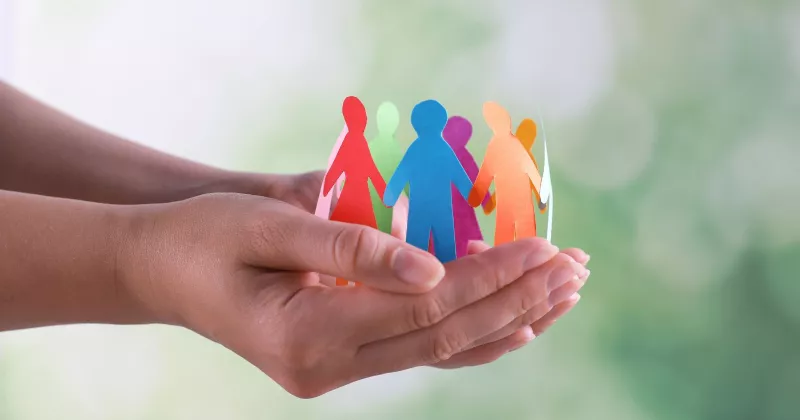Training and support during and after Covid-19: what are the challenges and answers in terms of innovation?
[Translation (French - English) : EPALE France]
Training and support during and after Covid-19:
Part 1: what are the challenges and responses in terms of innovation?
With the current pandemic impacting the entire planet, the consequences of which remain difficult to predict, talking about training and support may seem ridiculous or even inappropriate. However, the issue of continuity of activities and services is essential. First, in healthcare and all services or production sectors related to looking after people. But also, in any context that provides an opportunity for personal development and for individual and collective promotion. It can also help us learn from this unprecedented period. In this series of 4 articles, we will deal with the question of continuity of service in the field of training but more specifically with all that relates to the activity of advisory services (particularly in professional development) and support. We will hear from professionals and networks to see exactly how they are coping, what they have put in place and the perspectives that this new situation opens up for them.

Continuity in the rupture?
The question of pedagogical continuity has never been as predominant and complex in debates as it is at the moment. This is because the decision to enter lockdown was seen as brutal, and highlighted the difficulty of radically changing forms of service in environments where face-to-face communication is central. This raises many questions. The responsiveness of everyone involved has been admirable, even though everyone agrees that a rupture is in progress, and that its many consequences remain to been seen. Today, we approach the situation with the means at our disposal and have to be inventive in optimising the way we use them in the service of people. How can we guarantee continuity when discontinuity and rupture are happening right before our eyes? It was clear from the beginning: providing distance learning requires more than simply making a Skype or video recording; it is not about collecting test papers at the end of the set time; we cannot simply replace a face-to-face interview by a telephone call. We cannot simply do the same things using a different method. We have to change the way we perceive the construction of knowledge. Nothing new? Except that the abrupt nature of the current context does not allow for gradual adjustments. Without face-to-face contact, and with fewer synchronous interactions, we have to use an architecture made up of rapid transformations: easier access to selected resources; high-performance platforms; the possibility of shorter and more personalized synchronous interactions; remote working; possibilities for collaboration, etc. in short, large-scale flipped classrooms. This of course has consequences in terms of resources, network robustness and platform ergonomics. This can be adjusted over time. Considerable progress has already been made on this front in a very short period of time. But it also has an impact on the approach of the professional and the person being accompanied or in training. Co-construction of knowledge is no longer an option but a necessity, both in terms of the relevance of the response and in terms of pedagogy, solidarity and social equity.
Acceleration and innovation?
What seemed yesterday to be a simple hybridization of training or coaching methods, or for some people, useless technological gadgets, is now the only option. This raises the question of "makeshift" solutions, circumstantial inventiveness and the sustainability of the options developed. It is clear from the reactions of some professionals that they see this as a transitory solution, or even worse, one to pass the time. As if continuity were no more than a fill-in solution to maintain a connection. On the contrary, we believe it is important to see this time as a pedagogical opportunity: an unprecedented field of experimentation, on a daily basis, free of formal constraints. Innovation on a large scale: a number of barriers have fallen down fairly quickly. This can be seen in the almost immediate availability of a very large number of online educational resources and also in the Ministry's call for contributions from training organizations and content publishers.
Sustainability?
We can also see that the difficulties are not the same across different audiences. Every parent experiences this on a daily basis on the platforms as they support their children. This is not something that can be improvised. Our lack of preparation is something we have experienced collectively. In addition, the systems themselves are not configured to receive such heavy use in such a short space of time. This has led to social, educational and technical consequences. The first is that this rupture is a disadvantage to those who are in the greatest difficulty, as it imposes methods with which they are not familiar. And sometimes, these methods are made even more difficult due to the technical constraints of their access and use (network access, hardware). In this unprecedented situation, we must continue to innovate in our ways of connecting with and supporting this audience. There is a clear risk of further marginalisation. We are not all equally protected against Covid-19 (to stay at home, you have to have a home), and we are not all equally equipped with digital tools either. This of course has consequences on education. Multi-modal architectures are the only option possible. We have to continue to develop and invent: this lockdown period is also an opportunity. But there are certain conditions. One risk is that the debate will be reduced to the question of tools and networks. Indeed, we do need to think about architectures that rely on several modalities and access to diversified resources, but the issue of personalisation must be central. It is on this condition that the idea of "for all" can be approached in a sustainable way. This implies vigilance in terms of both technical requirements (quality, accessibility and ergonomics of the platforms) but also on the conditions for independence in training or receiving support. More generally, there is an increased dependence on overloaded, tensioned grids in this period. The issue of sustainability also raises the question of digital frugality.
In the following articles, we will hear from those who are working towards this continuity, in particular the Mfreo network and professional development counsellors. We will also take a more European view of these issues. We have to learn collectively from what we are experiencing in order to move forward in the lifelong development of skills, for all.
André Chauvet






Very interesting blog post!